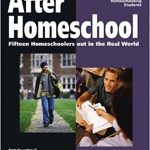Research on Home Education
USA
Many more articles on NHERI (National home education research Institute) website.
Brian D. Ray Ph.D. January 23rd 2018 Child abuse
Wretchedly, news stories, anecdotes, and research regarding school teachers and other school personnel doing evil things to students and children have become too common in the United States. [1], [2] News stories, government data, and research reports on parents harming children are also available.
Kathy Knez B.S.Ed 2006 schools-white middle class norms
Classroom expectations that include “white middle class norms” are a part of curriculum that teaches “what is right for the majority is right for all.” The school environment is manipulated to mould a child in the system’s image, not to bring out his own innate uniqueness. Teachers and schools tend to mistake good behavior for good character and praise children for docility, suggestibility, doing what they are told or doing what is wanted without being told.
https://www.nheri.org/2006/02/08/schools-as-a-cause-of-behavior-disorders/
Ellen Moeller Ph.D Anthropology 2006 Community experience
As an alternative to public schooling, my observations of homeschooling seem to indicate a synthesis of public school and family small group society  teaching and learning modes. This includes a great deal of diversity and experimentation on the part of parents, students, and teacher to find what things work best on an individual basis. Consequently, there is a wide range in approaches used to teach, from spontaneous projects to scheduled book learning. Parents seek information and ideas from others in their situation, public schools, and from media sources. Furthermore, the experimentation extends to the content of the education. Namely, there appears to be a general stress on how to learn, as opposed to what to learn; the latter normally associated with public school approaches to teaching and learning. https://www.nheri.org/2006/02/08/presenting-ellen-moeller/
teaching and learning modes. This includes a great deal of diversity and experimentation on the part of parents, students, and teacher to find what things work best on an individual basis. Consequently, there is a wide range in approaches used to teach, from spontaneous projects to scheduled book learning. Parents seek information and ideas from others in their situation, public schools, and from media sources. Furthermore, the experimentation extends to the content of the education. Namely, there appears to be a general stress on how to learn, as opposed to what to learn; the latter normally associated with public school approaches to teaching and learning. https://www.nheri.org/2006/02/08/presenting-ellen-moeller/
Homeschooled Students’ Adjustment to College
Scott White, Elizabeth Williford, John Brower, Terance Collins, Roman Merry, and Maryam Washington. December 31, 2007 Department of Psychology, Belhaven College, Jackson MS
Home schooled students’ ability to successfully adjust to college life is one important criterion to demonstrate a positive outcome of home schooling. The present study compared Christian college freshmen who had previously been home schooled with a matched sample of traditionally schooled Christian freshmen on the College Adjustment Scale. The mean scores of the two groups were compared across the nine CAS scales designed to measure emotional, behavioral, social and academic problems typically presenting to university counseling centers. The home schooled students scored significantly lower on the anxiety subscale, while no difference was found between the two groups on the remaining scales. In addition, it was noted that there was a general trend characterized by home schooled students reporting fewer symptoms of emotional distress and social problems, and achieving higher first semester GPAs. The results suggest that home schooled college freshmen successfully adjust to the social and academic and social environment of a Christian college with a diverse student population. The limitations of this study in addressing key questions regarding the effect of home schooling upon socialization are discussed.
https://www.nheri.org/2007/12/31/homeschooled-students-adjustment-to-college/
Saving Democratic Education from Itself: Why We Need Homeschooling
Glanzer, Perry L
Alternatives outside the public system are attacked by Democratic Educators and even considered politically problematic. If we want to recover more human forms of education, we need to reinvigorate more pluralistic forms of humanistic education, such as homeschooling, that nurture philosophies and practices of education that allow for a wider focus upon human flourishing. Ultimately, this is why liberal democracies need homeschooling.
https://eric.ed.gov/?q=homeschooling&pg=2&id=EJ1053784
Explaining the Change in Homeschooling, 1970-2010
Joseph F. Murphy, Volume 29, No. 1, 2013, p. 1-13.
Frank W. Mayborn Chair & Associate Dean for Special Projects, Vanderbilt University’s Peabody College, Nashville, Tennessee, [email protected] 07 Jul 2013
Abstract: In this article, the tremendous change in the homeschooling population over the last 40 years—from less than 20,000 students in 1975 to over 2,000,000 today—is analyzed. This is accomplished by unpacking the changes in the social, economic, and political fabric of the nation that created an environment conducive to homeschooing.
https://www.nheri.org/explaining-the-change-in-homeschooling-1970-2010/
Bolle-Brummond, Mary Beth, & Wessel, Roger D. (2012)
Experienced homeschool parents and home-educated students have heard certain questions, repeatedly. Both the genuinely curious and
philosophically-negative critics of homeschooling have been making claims such as the following aimed at homeschooling for about 30 years now:
- The homeschooled will not do well in the ‘real world’ of adulthood?
- What about socialization? Children and youth cannot be properly socialized in a home-based education environment.
- Too many who are homeschooled never have to deal with the ‘Other,’ so they will never be decent, civil, and respectful.” (see, e.g., Apple, 2005; Reich, 2002)
Evidence suggests that children who start school later perform better later according to psychologists and TACTYC.
Staistics and research
https://fullfact.org/education/do-children-who-start-school-later-perform-better/
Interesting reading/watching
‘Helping children learn and explore in the world is best seen as a branch of natural science like trying to raise exotic plants or little known animals.’ John Holt.
After Homeschool:
Fifteen Homeschoolers out in the Real World (Parent’s Guide series)
 July 1, 2003 by Tamra B. Orr (Author)
July 1, 2003 by Tamra B. Orr (Author)
https://www.amazon.com/After-Homeschool-Fifteen-Homeschoolers-Parents/dp/1931199302
John Holt and Home Education video
https://www.youtube.com/watch?v=0tH_t5HDhHc&feature=share
United Kingdom
Leslie Barson 2015
A youtube video – A historical overview of Home Education.
In this talk I will give a brief historical overview of Home Education in England and Wales, the legal situation, outline of a central government attack on the right to home educate in 2009 and what changes this and other political and economic pressures have made. https://www.youtube.com/watch?v=qq_zQ49koao
Some information on research undertaken by Paula Rothermal, leslie Barson and others.
http://www.home-education.org.uk/articles/article-research-review.pdf
Paula Rothermal, 2002
This research explores the aims and practices of home-educating families from diverse socio-economic backgrounds. The methodology involves a questionnaire survey completed by 419 home-educating families and 196 assessments evaluating the psychosocial and academic development of home-educated children aged eleven years and under. The aim was to gain an understanding of children’s education outside school. This is the first UK study involving home-educated children and their families, using diverse methodologies, broad aims and large sample.
The results show that 64% of the home-educated Reception aged children scored over 75% on their PIPS Baseline Assessments as opposed to 5.1% of children nationally. The National Literacy Project assessment results reveal that 80.4% of the home-educated children scored within the top 16% band (of a normal distribution bell curve), whilst 77.4% of the PIPS Year 2 home-educated cohort scored similarly. Results from the psychosocial instruments confirm the home-educated children were socially adept and without behavioural problems.
The home-educated children demonstrated high levels of attainment and good social skills. Common to all families involved was their flexible approach to education and the high level of parental attention received by the children. Children benefited from the freedom to develop their skills at their own speed. Home-educating parents fulfilled two separate ‘professional’ roles – as parents and educators. Further, in the light of these results, the concept of ‘taking responsibility’ and home-educating, rather than accepting state provision challenges us to consider how far we should go in accepting the ‘informed wisdom’ of the school norm.
https://www.leeds.ac.uk/educol/documents/00002197.htm
Watch this video: an interview on the TV with a boy who was home educated: 34864C76-67DB-4501-B8EB-FC60F2699019